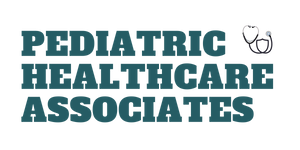Understanding and Responding to Breathing Trouble: Care and Advice for Young Ones
Breathing troubles in children can be alarming for parents and caregivers, as they may indicate underlying respiratory conditions that require prompt attention. Whether it’s wheezing, shortness of breath, persistent coughing, or unusually fast breathing, any sign of respiratory distress should never be ignored. Children are more vulnerable to breathing issues due to their smaller airways and developing immune systems, making it essential for parents to recognize the warning signs and respond appropriately.
Common causes of breathing difficulties in children include asthma, respiratory infections like pneumonia or bronchitis, allergic reactions, croup, and even environmental factors such as smoke or strong odors. Some children may experience chronic conditions that lead to recurrent breathing problems, while others might have acute episodes triggered by infections, allergens, or strenuous physical activity. Regardless of the cause, understanding the symptoms and knowing when to seek medical care can make a significant difference in a child's well-being.
At PHCA Altoona, we believe in equipping parents with clear guidance on what to watch for, how to help at home, and when to seek immediate medical care. If a child exhibits severe symptoms such as bluish lips, chest retractions (when the skin pulls in around the ribs while breathing), extreme fatigue, or unresponsiveness, emergency medical help should be sought immediately. Even milder symptoms like persistent coughing or wheezing warrant professional evaluation, as early diagnosis can prevent complications.
Pediatric clinics in Altoona provide comprehensive care for children experiencing respiratory issues, offering specialized treatments, diagnostic tests, and expert guidance tailored to each child's needs. These clinics help manage chronic respiratory conditions like asthma with personalized treatment plans, inhaler education, and allergy testing. They also offer vaccinations and preventive measures to reduce the risk of respiratory infections, ensuring that children receive the best possible care.
For parents, knowing how to manage mild respiratory distress at home is crucial. Keeping the child calm, using a humidifier, ensuring proper hydration, and avoiding known triggers can help ease breathing difficulties. However, if symptoms worsen or do not improve, seeking professional medical attention is the safest course of action.
By staying informed and working closely with trusted healthcare providers at pediatric clinics in Altoona, parents can confidently handle breathing concerns in children, ensuring their little ones grow up healthy and strong.What Does Breathing Trouble Mean?
Breathing trouble, or respiratory distress, simply means that your child is working harder than normal to breathe. Normal breathing in children should be easy, regular, and quiet. Trouble breathing often looks like:
- Struggling or straining to inhale or exhale
- Rapid, shallow breathing
- Nostrils flaring, ribs pulling in with each breath, or use of neck or shoulder muscles to breathe
- Inability to speak or cry comfortably due to shortness of breath
If your child’s breathing seems labored, don’t wait. Some conditions can worsen quickly, especially in young children. When in doubt, reach out to your child’s doctor.
When to Seek Immediate Help
Certain signs mean you should not delay care. Get help right away if:
- Your child has severe trouble breathing, struggling for every breath.
- Your child can barely speak or cry due to difficulty breathing.
- Your child has passed out or stopped breathing entirely.
These are life-threatening emergencies—call 911 or go to the nearest emergency room immediately if you see these signs.
Common Causes and Concerns
Breathing problems can result from many issues, such as asthma, bronchiolitis, pneumonia, airway blockage, or severe allergic reactions. Any time breathing trouble is noted, it’s important to consider calling the doctor to discuss next steps. Many of these conditions require medical evaluation and often supplemental oxygen or other treatments.
What to Do While Waiting for Help
If your child has trouble breathing but is still alert and responsive, here are a few steps you can take until you speak with a healthcare provider:
- Coughing Fits or Spells:
- Have your child breathe in warm mist. Turning on a hot shower and sitting in the closed bathroom can help loosen phlegm and relax the airway.
- Clearing a Blocked Nose (For Infants):
- If your baby’s nose is blocked with thick or dry mucus, they may have trouble feeding or drinking.
- Use saline (saltwater) drops or spray to soften mucus. If none are available, a few drops of bottled or properly cooled boiled tap water can help.
- Place 3 drops in each nostril (1 drop if under 1 year old), then gently suction out the loosened mucus.
- Repeat until the nose is clear. Do not exceed four times per day.
- Avoid Tobacco Smoke:
- Secondhand smoke can significantly worsen breathing difficulties. Keep your child’s environment smoke-free to prevent irritation of their airways.
When to Go to the ER Immediately
If you’ve reached out to your doctor and haven’t heard back within 30 minutes, or if your child’s breathing trouble worsens—such as the ribs pulling in with each breath, wheezing growing louder, or breathing rate increasing—head straight to the emergency room.
Signs That It’s Time to Contact Your Doctor
- Bluish lips or face (especially when not coughing)
- Possible choking on a small object
- Sudden trouble breathing after a bee sting, new medication, or allergic food
- Loud wheezing or a tight, harsh sound when inhaling (stridor)
- Trouble breathing plus very fast breathing rate
- Nonstop coughing preventing sleep or normal activities
- Your child looks or acts very ill
If any of the above apply, and you feel your child needs urgent care, call your pediatrician or head to a medical center right away.
Trust Your Instincts
If you suspect your child is having difficulty breathing, it’s always safer to contact a healthcare professional sooner rather than later. At PHCA Altoona, your child’s well-being is our top priority. Don’t hesitate to call us if you’re concerned about your child’s breathing or if they show any concerning symptoms. Our team is here to help guide you toward the best care possible.
Disclaimer: This health information is for educational purposes only. You, the reader, assume full responsibility for how you choose to use it.





